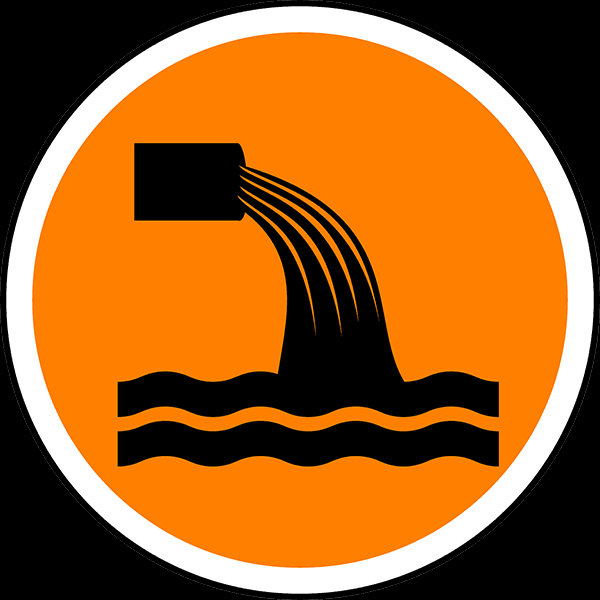9 Easy Facts About Reclaim Waste Shown
9 Easy Facts About Reclaim Waste Shown
Blog Article
The 5-Second Trick For Reclaim Waste
Table of ContentsReclaim Waste Things To Know Before You Get ThisOur Reclaim Waste DiariesIndicators on Reclaim Waste You Should KnowA Biased View of Reclaim WasteThe Definitive Guide for Reclaim Waste
Discover the types, occurrences, and kinds of liquid waste. Residential sewer waste describes the waste and items from a residential sewage-disposal tank. This kind of waste is produced by people in houses, schools, and other buildings. This only consists of septic systems that have a drain field. The appropriate administration and disposal of residential sewer waste need fluid waste to be moved to a sewer treatment plant where the appropriate approaches and tools are put on cleanse and get rid of waste.
Business waste often consists of possible hazards, such as combustible materials or a mixture of liquid and strong waste products, and requires an advanced and detailed disposal process. The disposal of business waste usually involves the purification of waste prior to transportation to ensure safe and correct disposal. Industrial waste is produced from by-products and drainage of industrial processes and production.
This sort of waste can not use the very same sewer administration transport or processes as septic or business fluids. The commercial waste administration procedure requires the assessment and testing of fluid waste prior to it goes through the disposal procedure (liquid waste disposal melbourne). Drainage waste is the fluid waste that originates from overflow and excess stormwater in highly booming locations or cities
Drainage waste can create contamination and flooding if not dealt with effectively. Guaranteeing appropriate waste monitoring can protect against disasters and lower environmental injury.
Our Reclaim Waste Statements
Call PROS Solutions today to find out about our waste management and disposal solutions and the proper methods to look after the liquid waste you create.
(https://trello.com/w/reclaimwaste1/)Do you know what takes place to your water when you disengage, purge the bathroom or drain pipes the washing equipment? No? Well, it's worth understanding. This supposed 'wastewater' is not only an important source but, after treatment, will certainly be released to our land, rivers or the sea. Used water from toilets, showers, baths, kitchen area sinks, washings and commercial processes is called wastewater.

water utilized to cool equipment or tidy plant and tools). Stormwater, a kind of wastewater, is runoff that flows from farming and urban areas such as roofs, parks, yards, roadways, courses and seamless gutters right into stormwater drains pipes, after rainfall. Stormwater moves unattended directly to regional creeks or rivers, eventually reaching the sea.
Get This Report about Reclaim Waste
In Queensland, a lot of wastewater is dealt with at sewer treatment plants. Wastewater is transferred from residential or industrial websites with a system of sewage systems and pump over here terminals, known as sewerage reticulation, to a sewer treatment plant.
The Division of Natural Resources recommends local federal governments regarding handling, operating and preserving sewage systems and treatment plants. In unsewered areas, city governments might require homeowners to mount individual or home sewer treatment systems to deal with residential wastewater from toilets, cooking areas, shower rooms and washings. The Division of Natural Resources authorizes the use of house systems when they are proven to be effective.
Many stormwater gets no treatment. In some new communities, therapy of some stormwater to eliminate trash, sand and gravel has begun using gross pollutant catches. Wastewater therapy takes place in 4 phases: Gets rid of strong matter. Bigger solids, such as plastics and other things wrongly discharged to sewers, are gotten rid of when wastewater is passed through displays.
Wastewater then streams right into large tanks where solids work out and are eliminated as sludge. Oil and residue are skimmed from the surface area. Uses tiny living organisms referred to as micro-organisms to break down and get rid of remaining dissolved wastes and fine bits. Micro-organisms and wastes are integrated in the sludge. Eliminates nitrogen and phosphorus nutrients that might cause algal blossoms in our waterways and endanger aquatic life.
Not known Details About Reclaim Waste
Nutrient elimination is not offered at all sewer treatment plants because it needs expensive specialised devices. Clear fluid effluent created after therapy might still consist of disease-causing micro-organisms - industrial wastewater treatment.

This generally implies wastewater has to be treated or impurities eliminated prior to it can be discharged to rivers. Many wastewater moves right into the sewerage system. Under the Act, city governments administer authorizations and permits for ecologically relevant activities (Periods) involving wastewater releases that might have a regional impact. The division provides authorizations and licences to Ages including wastewater launches that could have a regional or statewide effect.
Our Reclaim Waste Statements
Otherwise, samples are considered lab analysis. Usually many tests are required to establish the levels of each of the various toxins such as oils, heavy steels and chemicals in water. Surveillance offers valid information about water quality and can confirm that permit conditions are being fulfilled. The details obtained via monitoring supplies the basis for making water quality choices.
Report this page